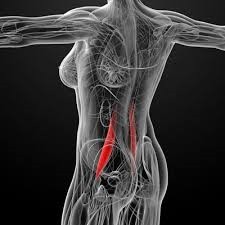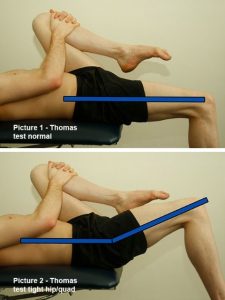Sitting too much?
If so, then feeling stiff and tight in your hips and your lower back are likely familiar symptoms to you.
Sitting for prolonged periods of time with a high frequency can cause problems for your body, namely: “pattern adaptation or maladaptation”.
This is when the muscles, joints and tissues in the body respond to a particular stimulus or input, in this case sitting, and reorient their structure or function accordingly.

For instance, imagine you had a plaster cast placed on your elbow at 90 degrees for an extended period of time. Once that cast was removed, it would be very difficult initially to bend and extend your elbow. Consequently, your full range of motion would be temporarily limited as the tissues have now adapted to that restricted position.
A very similar response occurs in the hips with prolonged sitting over time. To keep things simple, when you’re in a seated position, the hip flexors shorten and the hip extensors lengthen.
Upon standing and walking, the flexors can remain stiff and restricted. Therefore, this can inhibit the full function of the extensors (gluteus maximus etc). This often results in lower back and hip pain/stiffness, poor gluteal muscle activation, lack of strength and reduced performance in many exercises and activities.
How bad is it?
A simple test that can be performed at home is the Thomas Test, featured below. If your leg looks more like picture 2, then this indicates some restriction in your hips. It would be wise to seek further guidance from your physiotherapist. However, the Thomas Test is only one of many tests that your physio will perform during assessment which will help to facilitate a successful treatment for you.

Treatment
Physiotherapists can use a vast range of modalities to treat stiff or painful hips including:
- soft tissue massage and releases,
- joint mobilisation,
- stretching,
- dry needling,
- exercise rehabilitation and reconditioning to name a few.
These treatment options can help to restore full function of your hips, reduce pain and stiffness and overcome the “pattern adaptation” that can occur with sitting. The strengthening component is particularly important and can be often overlooked.
Feeling “tight” is commonly responded with a need to stretch. However, even when muscles have shortened or become “tight” they often lose their ability to contract and function at full capacity. It’s important to note that stretching is only one aspect of treatment. Strengthening and reconditioning as mentioned above, can exponentially improve results.
A structured program addressing these issues is often required and should be provided to you by a skilled physio. This will return you to living a pain-free and limitless life. Let’s face it, we weren’t born to sit at a desk all day!
You can BOOK ONLINE to see one of our physiotherapists, or call us on (02) 9267 3775.

